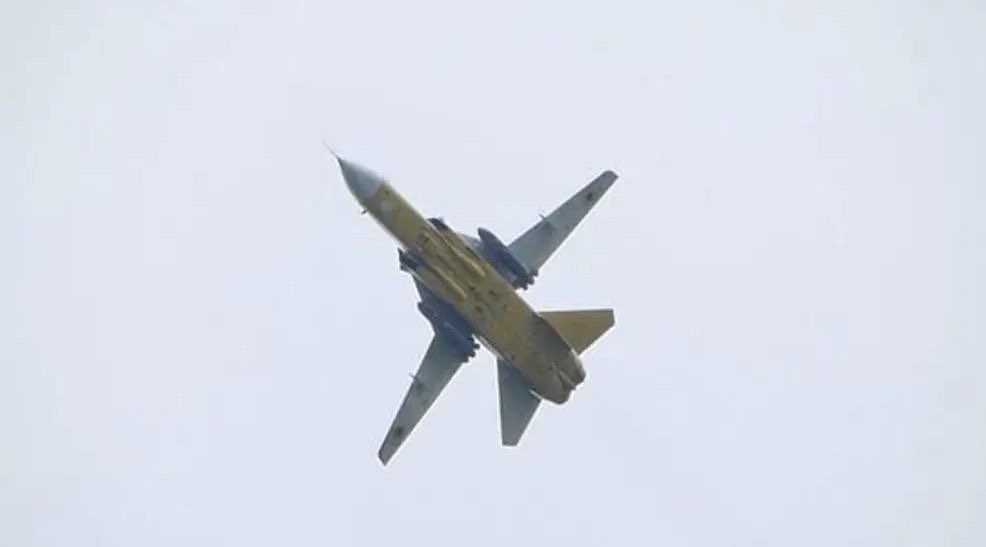Ukraine Given Green Light to Use NATO Weapons on Russian Territory: Red Lines Blurring
In a significant turn in the war in Ukraine, several NATO member countries authorized the use of weaponry supplied to Ukraine to attack military targets inside Russian territory.
Key points:
- Strategic change: Several NATO countries have authorized Ukraine to use weapons supplied by the alliance to attack military targets within Russian territory.
- Objective: To stop Russia’s recent territorial gains and prevent the situation on the battlefield from deteriorating further for Ukraine.
- Escalation: It increases the risk of an escalation of the conflict, with potential repercussions for security in Europe.

This decision marks a crucial strategic shift in Western military assistance to Ukraine, and could be interpreted as a response to the recent territorial gains achieved by the latest Russian offensive (as yet, none of strategic relevance) and the general deterioration of the front line for the defenders.
One of the newest members takes the lead
Although Kiev had been asking for it for some time, until now its NATO allies had resisted allowing the use of long-range weapons supplied to destroy targets inside Russian territory, for fear that the conflict (a sort of proxy war contained within Ukrainian territory) would escalate out of control. However, as the Russian offensive advances daily – albeit at a high cost – these previous hesitations are crumbling.
Sweden, one of the alliance’s youngest member states, was the first country to explicitly allow Ukraine to use weapons supplied by Stockholm against targets on Russian soil. Swedish Defense Minister Pål Jonson justified this decision by citing Ukraine’s right to self-defense under international law
“Ukraine is the victim of an illegal and unprovoked war of aggression by Russia. Under international law, Ukraine has the right to defend itself through hostilities directed at the territory of the adversary, provided that these hostilities comply with the laws of war,” stated Jonson
See also: Capability leap: Sweden to donate Saab 340 AEW early warning aircraft to Ukraine
After Sweden took the first step, French President Emmanuel Macron together with German Chancellor Olaf Scholz publicly agreed that Kiev should be allowed to use the supplied weaponry to “neutralize the military sites” from where Russian forces launch their attacks against Ukraine, but not to go beyond that. European leaders do not want Russian civilians to be attacked or other military targets destroyed that are not directly involved in the actions on the Ukrainian front.
“Ukraine has the right under international law to defend itself against attacks from the Russian border area. For this purpose, it can also use weapons supplied in accordance with its international legal obligations; including those supplied by us” confirmed Steffen Hebestreit, spokesman for the German government.
Die Ukraine hat das völkerrechtlich verbriefte Recht, sich gegen die Angriffe aus dem russischen Grenzgebiet zu wehren. Dazu kann sie auch die gelieferten Waffen in Übereinstimmungen mit ihren internationalen rechtlichen Verpflichtungen einsetzen; auch die von uns gelieferten.
— Steffen Hebestreit (@RegSprecher) May 31, 2024
The move by Germany was preceded, the day before, by the Biden Administration’s decision to authorize Kiev to use U.S.-supplied weapons against military targets inside Russia, provided they are facilities supporting the offensive against the northeastern Ukrainian city of Kharkiv.

Alexander Stubb, President of Finland, announced that he also authorized the use of the weaponry ceded to Ukraine to attack targets on Russian territory.
A controversial measure
Western politicians and experts received the news with caution, warning that it could provoke an escalation in the conflict.
Italy and Spain maintain their position not to lift restrictions on the use of Western weapons against Russian territory.
“Italy is not at war with anyone, and while it is right to help Ukraine militarily, there are no plans to lift the ban on Kiev attacking military targets in Russia,” said Matteo Salvini, Italy’s deputy prime minister.
The decision to allow Ukraine to use NATO weapons on Russian territory was called a “dangerous provocation” by the Kremlin.
“This is a dangerous escalation that could have serious consequences,” Russian Defense Ministry spokesman Igor Konashenkov said, TASS news agency reports “Russia reserves the right to take all necessary measures to protect its security.”
Former Russian President Dmitry Medvedev, known for his warmongering stance and inflammatory statements, warns the West that it “risks miscalculating the chances of nuclear weapons being used.”

/https://aviacionlinecdn.eleco.com.ar/media/2023/11/SU-24-SCALP.jpg)
Para comentar, debés estar registradoPor favor, iniciá sesión